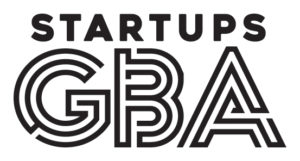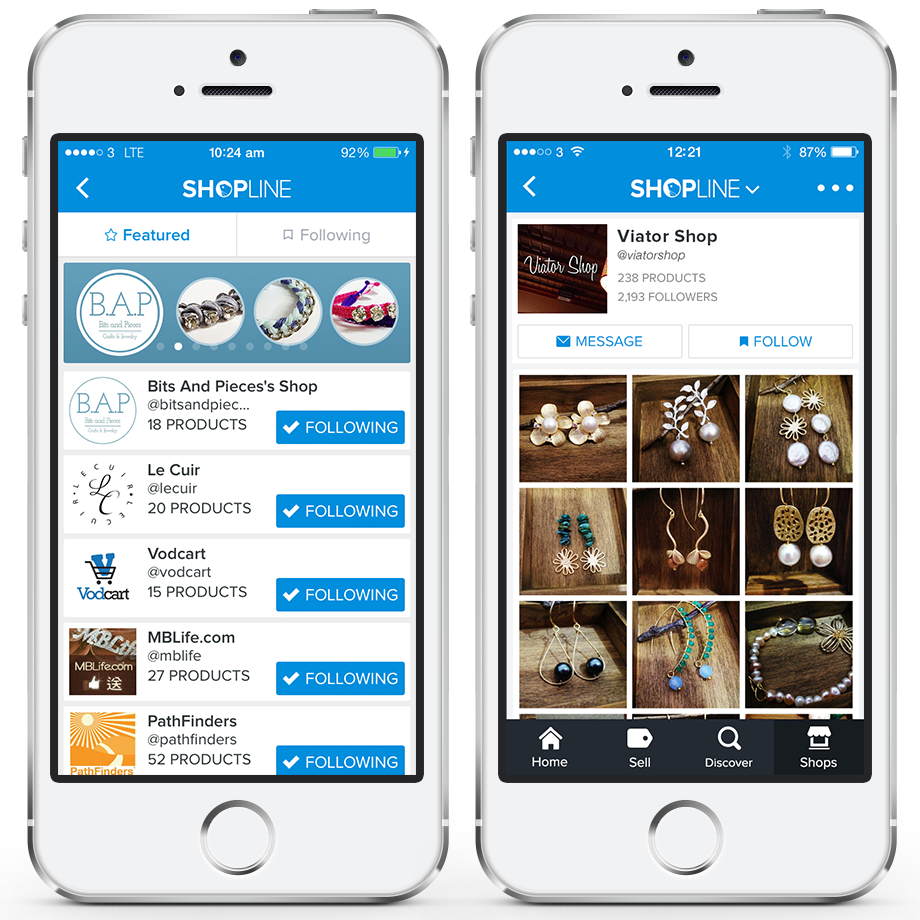
After many years of living in New York City, Shopline co-founder and CEO Raymond Yip now calls Hong Kong his home. Prior to starting up Shopline, Raymond managed the engineering and delivery of software products for large corporate teams in New York City and Hong Kong.
Aside from enterprise technology, Raymond has created and launched a multitude of products including e-commerce sites, a web/mobile social network and Facebook applications in the past. As a web and mobile user interface designer that have helped client businesses launch their presence on the web, Raymond was also the UI designer on the winning team at the April 2013 edition of Startup Weekend Hong Kong for Best User Experience.
What is your startup?
Shopline provides non-tech-savvy merchants a quick and simple way to set up and manage their online shop. We find that there is still a huge opportunity to offer merchants an easy way to establish their brand and start selling immediately via their own e-commerce website. The problem for some of these sellers is that, while there are many solutions out there, they still do not have the technical know-how or the resources to create a branded online shop. This rings especially true in Hong Kong and other parts of Asia.
We are positioning Shopline as the easiest way for anyone to create a fully functional, self-branded, e-commerce site within minutes. Our differentiation lies in our simplistic setup process, knowledge of the local selling culture, and the fact that the entire experience is optimized for mobile. From setup to customization and management, the merchant has the same control on their smartphones as they do on their computers. All of our network shops are completely responsive and adapts to all screen sizes so the customer experience is consistent on every device. With mobile usage skyrocketing over the past several years, we are focused on giving our customers a solution that will help them manage their business on the go, as well as for consumers to purchase via their mobile devices.
Unlike some of our global competitors, we are offering our services for free. Anyone can start a shop immediately without any upfront costs. Our pricing model is great for sellers that are serious about selling online but aren’t yet ready to commit money to trying a new service. We feel this will provide the most value for our target customers. Aside from the basic shops, we will also roll out a series of customizations and add-ons, including advanced analytics and CRM features as premium offerings.
How did you come up with this idea?
Having lived in the U.S. for many years, I have never had any problems selling my personal items online. Usually it would just mean a quick listing on eBay or Craigslist and within a few days my item would be out the door. However, when I move back to Hong Kong, I found that it really wasn’t nearly as easy here. So I had this idea of creating a mobile marketplace for people of this city to buy and sell personal items. I met my technical co-founder, Tony Wong, at a local startup event and when I shared my idea with him, he was also very excited at the opportunity. Fast forward several months, the two of us participated in the April 2013 edition of the Startup Weekend event in Hong Kong. While I was fortunate enough to be on the winning team for the Best UX, Tony was an overall winner for the event. Part of the winning prize that we each received was a free 1-month membership at the co-working space HK Cocoon. It is there that we really decided to hunker down and get to work on our marketplace idea. We eventually recruited our third co-founder, Fiona Lau, to help us on the business end of things. As we began to garner some feedback, we realize that traction for a marketplace alone would take a very long time to build up and the chicken and egg problem always stood out as a huge challenge. We then rebooted our approach and decided instead to develop tools for sellers to create a presence on the web. That is where we felt we would bring real value to merchants of Hong Kong and opportunity to drive revenue. We called our new product Shopline.
Who are you targeting and how big is the market in HK/Asia?
Being that we are familiar with the local culture and are based here, it made the most sense to try and capture the Hong Kong market first. We spent much of our attention on customer acquisition locally, reaching out to merchants, both physically and online to sell them on our solution. While many of them were hesitant, we eventually found sellers that were really looking for a better and more cost effective way to sell their products. Especially the ones that do not have the financial resources to open physical shop in this high-priced commercial rental market that we operate in. We feel that there is still a huge opportunity in Hong Kong for Shopline as mobile commerce begins to pick up in the city.
With the rising popularity of apps like Taobao and Groupon, consumers have become more comfortable with the idea of buying online and using their smart phones to make purchases. The value for individual merchants to have an online and mobile presence will only continue to increase over the next 2-5 years. I feel that Hong Kong has always been a difficult nut to crack in terms of changing consumer behavior, but the aforementioned companies are definitely opening new doors for other merchants as more and more shoppers are putting increased trust into online commerce.
Currently, all of our entities (website, mobile apps, etc.) are localized to English and Chinese. So we are certainly positioned to serve Hong Kong, for both locals and expats alike. Other markets that would have great potential are countries such as Taiwan and Singapore. As a matter of fact, many of our current shops and much of the traffic actually originates from Taiwan.
What are your future plans for your startup?
We strive to turn Shopline into the go-to service for creating online shops quickly and easily within the Asia Pacific region. Since our team is small, we are able to move extremely quick and we work very hard to keep up with our product roadmap. We’re already looking to expand the team as we’re currently looking to hire full-time front-end and mobile developers to help us move even faster. Marketing is also another key aspect that we will be expanding our efforts on. Aside from traditional advertising and online marketing, we’re spreading the word by holding workshops around the city and even partnering up with non-profit organizations to educate people on what it takes to sell online, and how they can do it by leveraging Shopline. I feel that cultivating the community is a crucial part in building a strong base of initial customers, as those will be the early adopters that can help us evolve the product and create features that merchants really value.
In the meantime, we have also begun the process of fund raising. We’ve been reaching out to local investors to talk about funding opportunities. While we believe we are strong enough to make our product a success on our own, any funding that we are able to secure will help us move much quicker. At this point, we are focused on building Shopline into a great business first and foremost, and that is what we work toward each and every day.
 (The Shopline team L to R: Raymond Yip, Fiona Lau, Tony Wong)
(The Shopline team L to R: Raymond Yip, Fiona Lau, Tony Wong)
1 Benefit and 1 Challenge in the HK startup scene?
The startup scene has grown so much in such a short span of time. While there were only several co-working spaces 18 months ago, now that number has tripled. There is definitely increasing interest in starting a tech company here in Hong Kong. With great venues where people can collaborate and the influx of interest from bigger companies from the Valley and elsewhere, Hong Kong has quickly solidified itself as the true tech hub of Asia. While that is all happening, more and more resources are becoming available to startups, which is great since that is what will help grow the ecosystem locally. Since Hong Kong is such an international city to begin with, we really get a great mix of entrepreneurs from all over the world to learn from, that alone already makes Hong Kong a very unique and exciting place to launch a startup.
Having said that, there are still some inherent challenges that come with being here in Hong Kong. Many of the markets in the region are so unique, especially in the field that Shopline is in. Specifically consumer behavior and how open different cultures are to new and disruptive ideas. In the U.S., it is much easier to reach a user base in the millions no matter which part of the country you happen to be in. However, any expansion in this region would mean we would immediately have to cross those cultural and language barriers. The great part of that though is that these challenges can definitely turn into great learning experiences on how your business needs to adapt to succeed.
Finally, I think that the more traditional entrepreneurs here may not be as open to collaboration and sharing of ideas as their Western counterparts are. However, I see that this is quickly changing with the various startup events, new co-working spaces and incubation programs launching in Hong Kong, strengthening the support system here for startups. This is why my co-founders and I believe that our best chances of succeeding are right here in the great city of Hong Kong.
Raymond Yip on Startbase.HK: Raymond Yip
Shopline on Startbase.HK: Shopline

